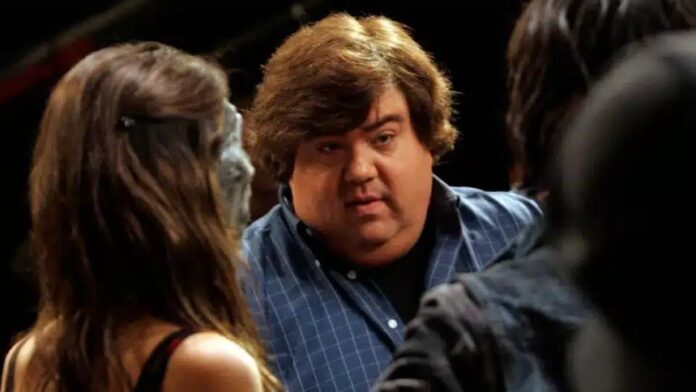There’s a scene in the movie Steve Jobs (2015) between the titular Apple giant and his friend Steve Wozniak in which they fight over giving certain development teams their due for helping build some of the most successful products in the company’s history. Jobs hunkers down on his position to not recognize those people. Wozniak offers stern rebuttals. When Wozniak realizes Jobs won’t budge, he offers this as a parting shot before walking out on his friend: “It’s not binary. You can be gifted and decent at the same time.”
The sentiment behind this scene echoes throughout ID’s new 4-part docuseries Quiet on the Set: The Dark Side of Kids TV, on Nickelodeon’s toxic work environment during the Nineties and the early 2000s in shows led by Dan Schneider. It’s essentially an exploration of what happens when a company’s biggest moneymaker is an abusive, sexist, and unethical presence that can make or break careers and leave deep scars on those caught in his path.
In addition, the show dives into the discovery of at least three sexual predators that worked on different sets and prayed on talent from programs such All That and iCarly. From this comes the bombshell revelation that one of Nickelodeon’s biggest stars, Drake Bell, was a victim of one such predator. He tells his story publicly for the first time in this series and it is both heartbreaking and deeply harrowing.
There are a lot of things Quiet on the Set does right, but a few specific ones are truly striking. First up is the quality of the interviews and the time afforded to them so that the voices of the affected lead the narrative. Featuring some of the now-adult stars of Schneider’s shows and other staff—All That cast members Bryan Hearne and Katrina Johnson, director Virgil Fabian, and The Amanda Show writers Jenny Kilgen and Christy Stratton among them—series directors Mary Robertson and Emma Schwartz give each interviewee a chance to get as much of their story out to the public as possible.
One thing that elevates these interviews is the set design for their scenes. Each person is seated either behind a table with office supplies on it or on an actor’s chair that highlights what their roles were and how important they’re work was to the success of each show. It gives them a sense of respectability that recognizes their experience without forcing upon them the victim label as if that’s all they came to be after they left or were removed from their positions.
The setup makes it seem like we’re stepping into a professional’s office, a place that belongs to someone who has achieved much despite the dark times they had to endure.
Another thing the docuseries does really well is highlight the investigative nature of the story, letting facts and carefully shot testimony make the case rather than impassioned bits of narration that guides the audience towards indignation. Directors Robertson and Schwartz trust in the audience to make their own judgments with the information provided.
The docuseries is very careful not to lay the blame entirely on Dan Schneider. It’s made clear that the hiring of those who would go on to engage in illegal sexual behavior were not hired by Schneider, nor were they protected by him. The revelations blindsided him just as much as they did a lot of the cast members. Many different things can go wrong in one place, but they can’t all be attributed to just one person. It takes a village to sustain a toxic work environment.
Nickelodeon executives and company men are also to blame for trying to sweep everything under the proverbial rug, and the show does an excellent job of showing just enough to get the point across without naming names that couldn’t be verified.
That said, Schneider is meticulously portrayed as a problematic genius that was allowed to get away with a lot just because he was producing hit after hit. The cost of building an empire on the back of an abusive person, though, is that whenever the bad stuff comes out the work becomes tainted. Glory is not without reckoning when it entertains so much ugliness in the process. Quiet on the Set is firm on this point. It’s a lesson places such as Nickelodeon should take to heart to secure a healthier and safer working environment.
Depending on your attachment to the shows explored in this docuseries, it’s safe to say a lot of your childhood memories will be affected. It’s not easy to enjoy something that you now know was built on abuse, gender discrimination, and trauma. There’s a lot of tragedy here, some of which couldn’t be explored more deeply for lack of testimony (Amanda Bynes, for instance, did not participate). But there’s more than enough here to further conversations on power, child safety, workplace toxicity, and the scary things that hide behind success.
Source: Graphic Policy







